The movie Oppenheimer chronicles the life of American scientist J. Robert Oppenheimer and his contributions to the development of the atomic bomb. As Christopher Nolan’s twelfth film, it is considered a challenging project due to its subject matter and biographical nature, which could potentially challenge Nolan’s typical filmmaking style. Nevertheless, Oppenheimer is Nolan’s masterpiece and one of the most successful biographical films ever made.
A Tale of Two Stories
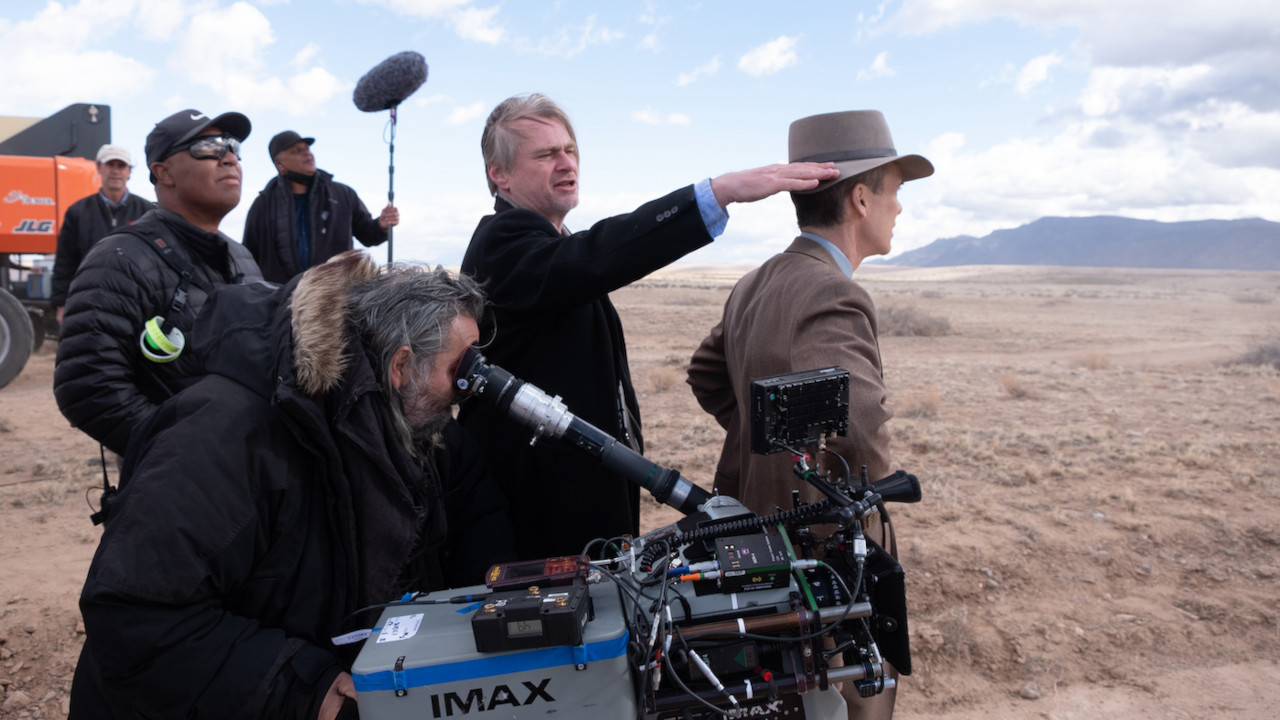
Oppenheimer is a movie that follows two separate storylines, which are woven together to depict J. Robert Oppenheimer’s life before, during, and after the creation of the atomic bomb. The first storyline, Fission, is in full color and chronicles Oppenheimer’s life from his early days to the fateful night in Los Alamos, ending with his unjust security hearing. The second storyline, Fusion, is from Lew Strauss’ perspective, played by Robert Downey Jr., during his confirmation hearing for Secretary of Commerce in 1958 under President Dwight D. Eisenhower. What makes Fusion unique is that it was filmed with black-and-white IMAX cameras, making Oppenheimer the first film ever to do so.
The shift between color and black and white was done to show the shift in perspective. During an interview with Total Film, Nolan stated: “I wrote the script in the first person, which I’d never done before. I don’t know if anyone has ever done that, or if that’s a thing people do or not… The film is objective and subjective. The color scenes are subjective; the black-and-white scenes are objective. I wrote the color scenes from the first person. So for an actor reading that, in some ways, I think it’d be quite daunting.“
Nolan fans may recall his use of scenes swapping between color and black and white in his previous films like Momento. However, unlike Momento, where the shifts were used to indicate time (color scenes went back in time while black and white scenes were linear), fans can take comfort in knowing that the change in perspective in this film is not at all confusing. In fact, it does an excellent job of showcasing Oppenheimer’s legacy from two distinct viewpoints often missing from biopics.
American Prometheus

Another concern of biopics, especially those based on source material, is how accurate the source material is and how the film adapts that material. In Oppenheimer‘s case, it is based on American Prometheus: The Triumph and Tragedy of J. Robert Oppenheimer, a Pulitzer Prize-winning biography by Kai Bird and Martin J. Sherwin. While Nolan wrote the script himself, it was heavily influenced by this biography, which has become the best biography of J. Robert Oppenheimer.
Since Bird and Sherwin’s biography became the authority on Oppenheimer, they have been given scripts on potential films about Oppenheimer over the years that they stated were always historically inaccurate, dull, or weird. However, this is not the case with the script for Nolan’s Oppenheimer. In the autumn of 2021, Bird was allowed to read Nolan’s script for Oppenheimer, a privilege granted to only a few individuals outside the film’s production. After reading it, Bird expressed his admiration for the script, as it differed from recent portrayals of Oppenheimer’s life by encompassing scenes from his entire existence and addressing the ethical dilemmas surrounding using the atomic bomb.
In addition, Bird said that Nolan adeptly portrays the debate among physicists regarding the necessity of the bomb and Oppenheimer’s view that it was deployed against an already weakened enemy. Bird notes that individuals unfamiliar with Oppenheimer may anticipate a movie focused on the inventor of the atomic bomb but instead will be treated to an enigmatic figure and an intriguing biographical narrative.
Is Nolan’s Oppenheimer Historically Accurate?
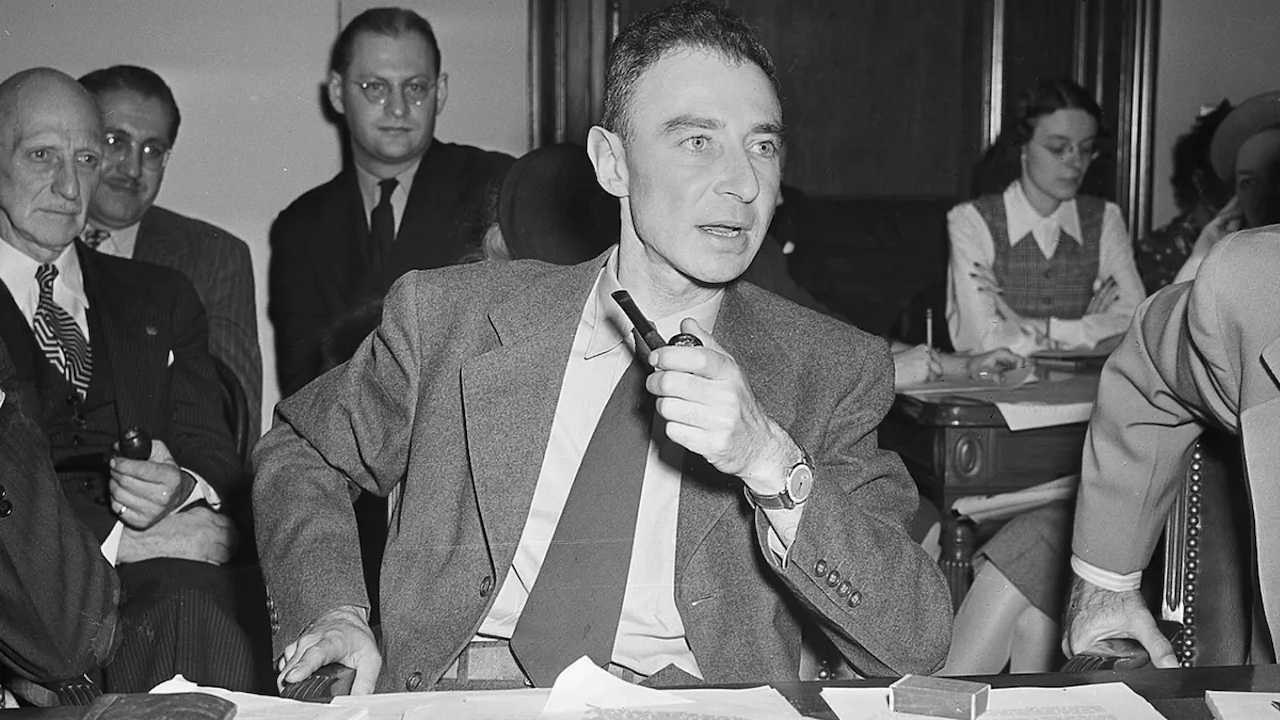
One significant concern viewers of biopic films have is how the subjects are portrayed. From a historical perspective, are the characters true to their real-life counterparts, or were liberties taken? Did their actions and the storyline match up with what happened? Rest assured. Viewers can be confident that the film accurately depicts the events of J. Robert Oppenheimer and nuclear history, as confirmed by numerous historians. This applies particularly to scenes some may have thought were fictionalized or exaggerated.
In addition to a historically accurate script, Nolan went the extra mile by casting actual scientists from Los Alamos as extras in Oppenheimer, who had a solid understanding of nuclear history, giving the film a great deal of authenticity. In an interview with Entertainment Weekly, Nolan talks about how these extras helped him stay faithful to the film’s historical accuracy because he relied on their reactions and let them improvise, which led to believable scenes in every one of their appearances. For instance, Nolan said that some of the extras gave an impromptu, knowledgeable speech on the geopolitical implications of nuclear arms.
This statement provides a helpful contrast between actors like Murphy, who invest considerable time and energy into preparing for their roles in a film to ensure their depiction of characters is as authentic as possible, but may not possess extensive knowledge of the characters they portray.
Performances

The cast of Oppenheimer is genuinely outstanding, featuring talented actors such as Murphy, Matt Damon, Emily Blunt, and Robert Downey Jr. Additionally, the supporting cast is equally impressive, boasting the likes of Josh Hartnett, Florence Pugh, Jason Clarke, and David Krumhotlz. Every actor in the movie delivered a remarkable performance, making it difficult to pinpoint any weak casting choices. However, several standout performances elevated Oppenheimer.
Murphy delivered his best acting performance to date in Oppenheimer, where he had the challenging role of portraying Oppenheimer during his early 20s to his late 50s. Despite this, he nailed every aspect of the character — from his physical appearance to his over-the-top personality and torn views on his creation. Murphy took Nolan’s first-person perspective and brought it to life in a truly fantastic way.
Damon portrays Leslie Groves, the leader of the Manhattan Project. As the project’s head, he supervised every aspect, from scientific and technical advancement to construction, production, security, military intelligence on enemy activities, and strategizing for the bomb’s use. Damon delivers a strong performance, particularly in his scenes with Murphy, where their characters match wits. I would have loved to be a fly on the when these two spoke in real life.
Blunt portrayed Kitty, Oppenheimer’s wife, masterfully because she shows the challenges of marrying a conflicted person like Robert, highlighting that these historical figures often had supportive wives who played a crucial role in their success. Despite enduring many difficulties, Kitty remained loyal to her husband. Blunt’s performance was outstanding, with memorable and amusing moments conveyed through her facial expressions and well-timed one-liners.
Is Oppenheimer worth Seeing in Theaters?
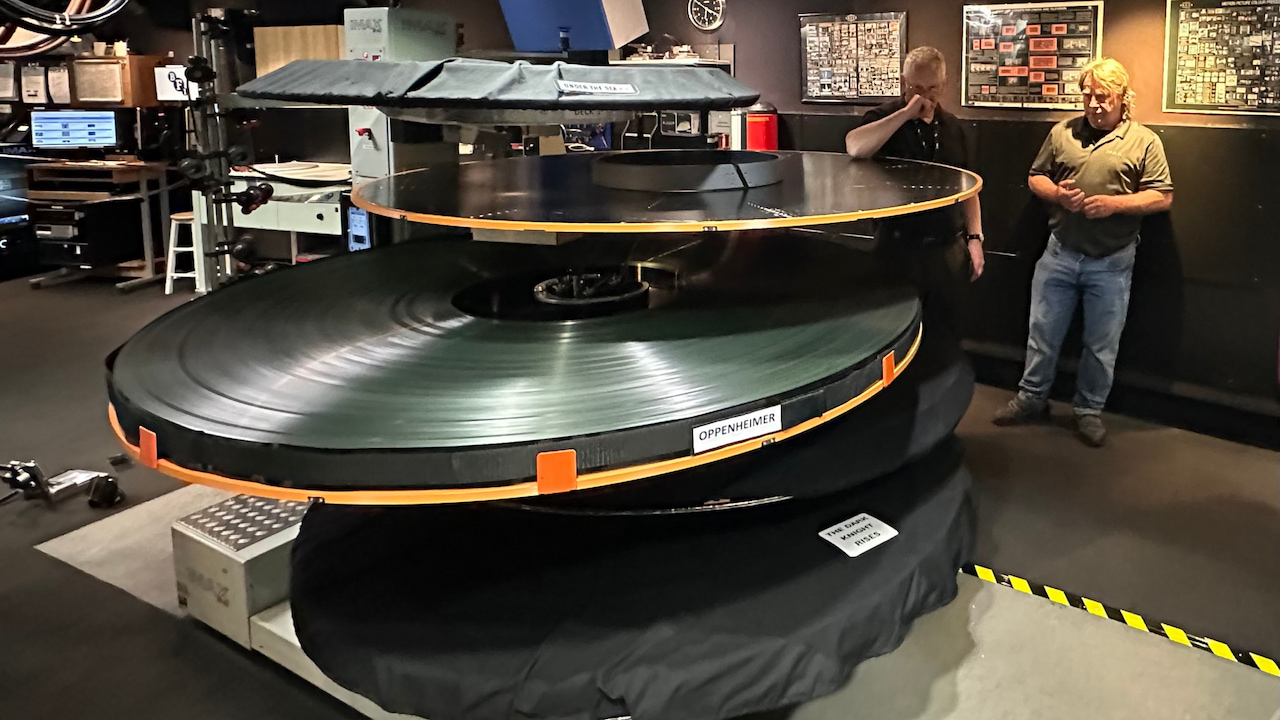
Yes, it is worth seeing Oppenheimer in theaters not only for the new IMAX format but because the experience is one you can’t replicate at home. As you watch the film, you may experience a range of emotions, such as shock, sadness, humor, disgust, and disbelief. Your emotional response may also vary based on the reactions of your fellow viewers in the theater. For example, when I watched the film, most viewers were unafraid to laugh during the colored scenes, and our laughter often carried over to the black-and-white scenes. However, during my editor’s viewing, the audience often checked themselves when the film switched back to black-and-white, creating an uncomfortable experience. Nonetheless, it has been a long time since I’ve felt such a strong emotional response during a biopic, especially when the subject matter is as heavy as the atomic bomb, while still doing an excellent job of portraying the human side of everyone involved in the project.
In addition, the sound issues that viewers experienced in Tenet are non-existent with Oppenheimer. All dialogue is clear and concise, which is extremely important for a film that covers complex topics and characters with accents from different countries.
The Verdict – Nolan’s Masterpiece

Without a doubt, Oppenheimer is a cinematic masterpiece that showcases Nolan’s exceptional filmmaking skills. This biopic is his best work to date, featuring outstanding performances from the cast. With this film, Nolan proves that he is unafraid to tackle complex and sensitive subjects, like the life of J. Robert Oppenheimer and the creation of the atomic bomb. The script is masterfully written, using two different perspectives to weave the story together, and the way the film is presented in two different formats is genuinely awe-inspiring. Overall, Oppenheimer is a must-see film that will leave you in complete admiration of Nolan’s talent as a filmmaker.


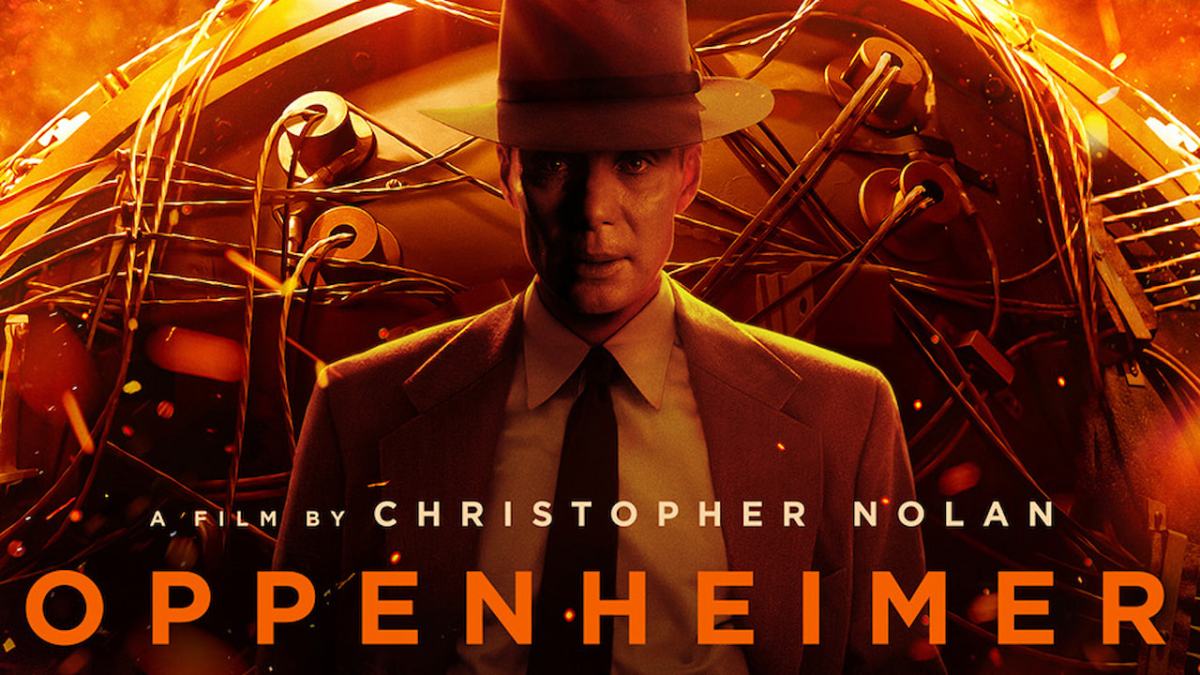
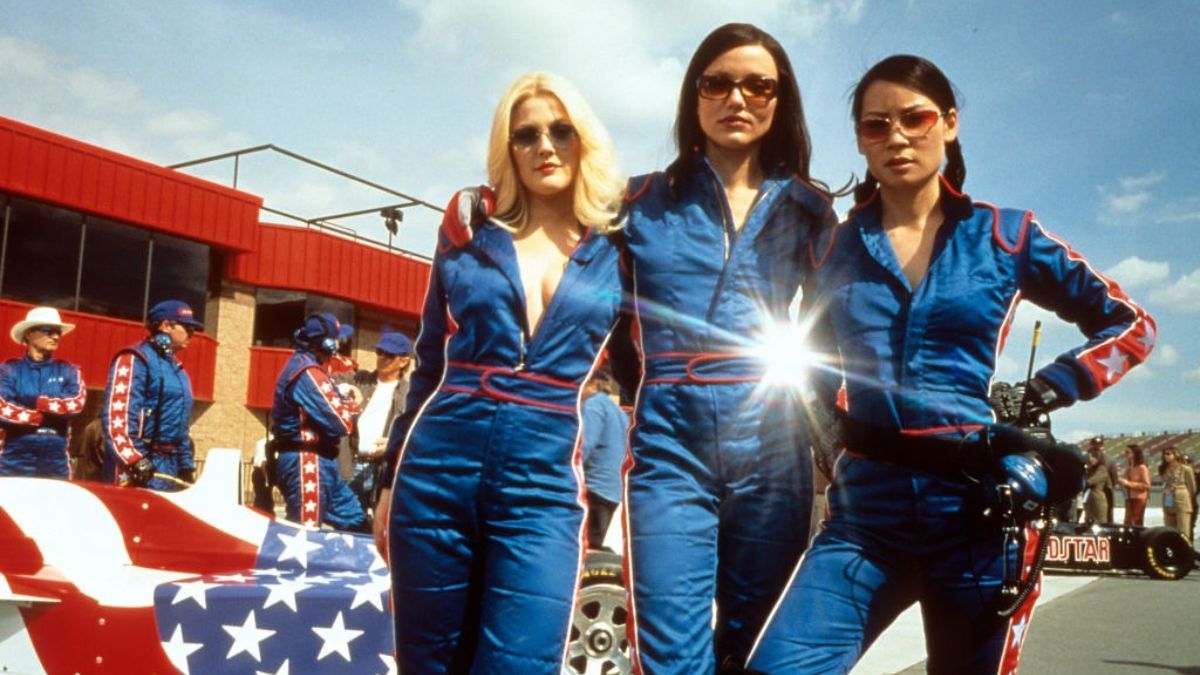








Published: Jul 20, 2023 03:15 pm